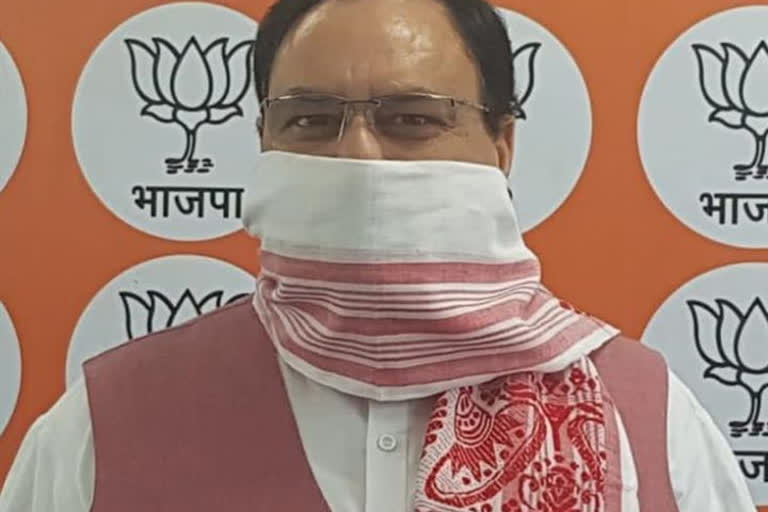New Delhi: BJP chief J P Nadda on Saturday slammed the Congress, saying it was damaging the morale of the forces by raising senseless questions over the issue of Indo-China face-off at certain sectors of the Line of Actual Control (LAC).
Addressing the BJP cadres of Rajasthan through a virtual 'Jam sanwaad' rally, the BJP chief said: "When we are fighting in Galwan, a leader is damaging the morale of forces with his tweets. He is showing his limited intellect. (He is asking) why have our forces gone unarmed. Don't you know international treaties? And they didn't go unarmed. Why are you exposing your limited intellect?"
He also hit out at Rahul Gandhi objecting to his choice of words. Nadda said the language used by him doesn't show the "sankskar" (upbringing) of an Indian family, very subtly resurrecting his mother's origin.
"Let alone respecting PM Modi, you didn't even respect your own PM and tore a copy of his ordinance," remarked Nadda referring to an incident in 2013 when Rahul Gandhi branded the then ordinance to save convicted legislators from disqualification as "complete nonsense" and tore up its copy in public. The incident sparked a massive row after which then Congress Prime Minister Manmohan Singh reportedly wanted to resign.
Also Read: Pakistani drone shot down near border in J-K, weapons recovered
Rahul Gandhi, in a strong statement after the India-China face-off in Ladakh alleged that Prime Minister Narendra Modi surrendered Indian territory to Chinese aggression.
The stand taken by Congress interim chief Sonia Gandhi at Friday's all party meet also drew flak from Nadda. He said, "Yesterday the Prime Minister held an all party meeting. With one voice, all leaders said that the whole country is standing with the Prime Minister. But the Congress was asking what happened, how it happened, where it happened."
The grand old party was represented by Sonia Gandhi at the meeting. Questioning the Modi government about "intelligence failure", Sonia Gandhi remarked, "In fact, even at this late stage, we are still in the dark about many crucial aspects of the crisis."



